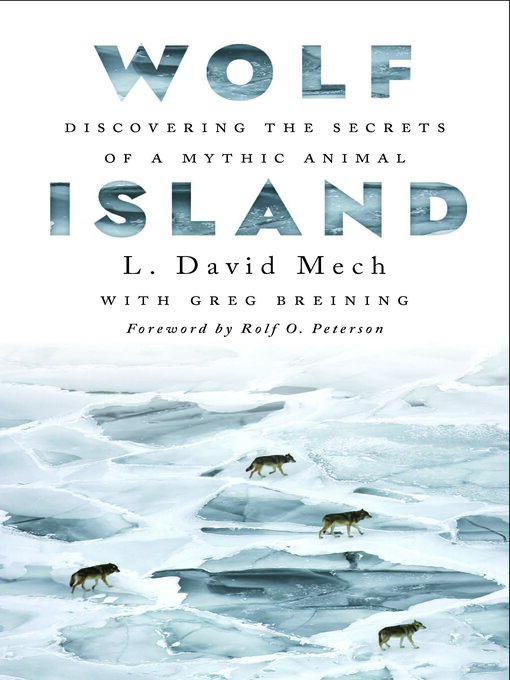The world's leading wolf expert describes the first years of a major study that transformed our understanding of one of nature's most iconic creatures
In the late 1940s, a small pack of wolves crossed the ice of Lake Superior to the island wilderness of Isle Royale, creating a perfect "laboratory" for a long-term study of predators and prey. As the wolves hunted and killed the island's moose, a young graduate student named Dave Mech began research that would unlock the mystery of one of nature's most revered (and reviled) animals—and eventually became an internationally renowned and respected wolf expert. This is the story of those early years.
Wolf Island recounts three extraordinary summers and winters Mech spent on the isolated outpost of Isle Royale National Park, tracking and observing wolves and moose on foot and by airplane—and upending the common misperception of wolves as destructive killers of insatiable appetite. Mech sets the scene with one of his most thrilling encounters: witnessing an aerial view of a spectacular hunt, then venturing by snowshoe (against the pilot's warning) to photograph the pack of hungry wolves at their kill. Wolf Island owes as much to the spirit of adventure as to the impetus of scientific curiosity. Written with science and outdoor writer Greg Breining, who recorded hours of interviews with Mech and had access to his journals and field notes from those years, the book captures the immediacy of scientific fieldwork in all its triumphs and frustrations. It takes us back to the beginning of a classic environmental study that continues today, spanning nearly sixty years—research and experiences that would transform one of the most despised creatures on Earth into an icon of wilderness and ecological health.



